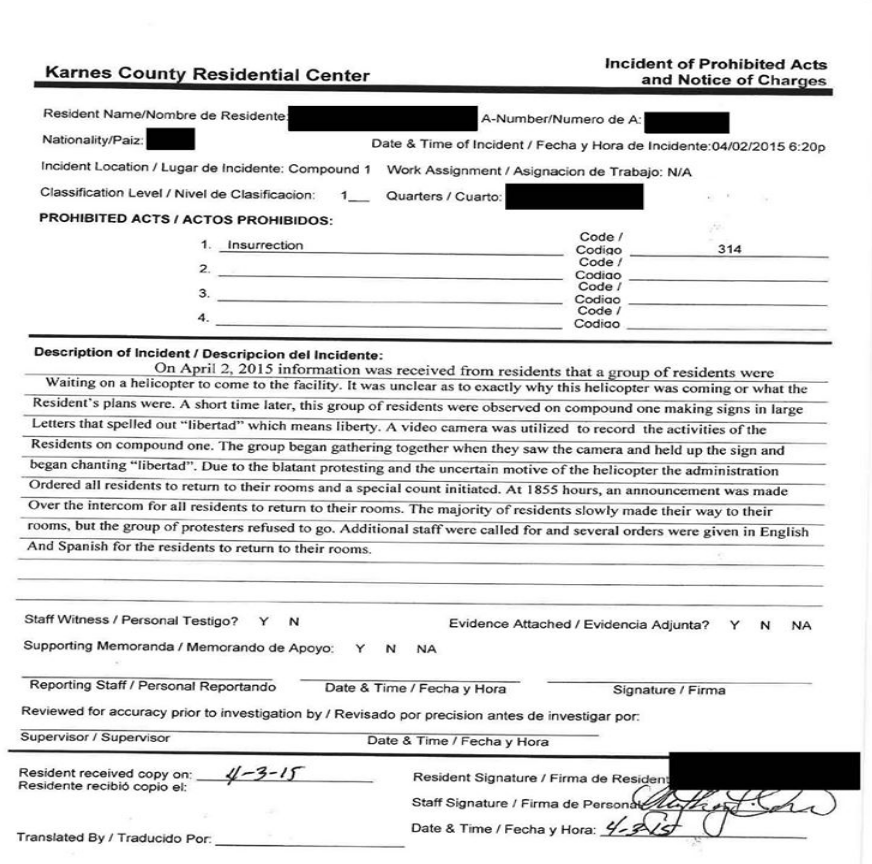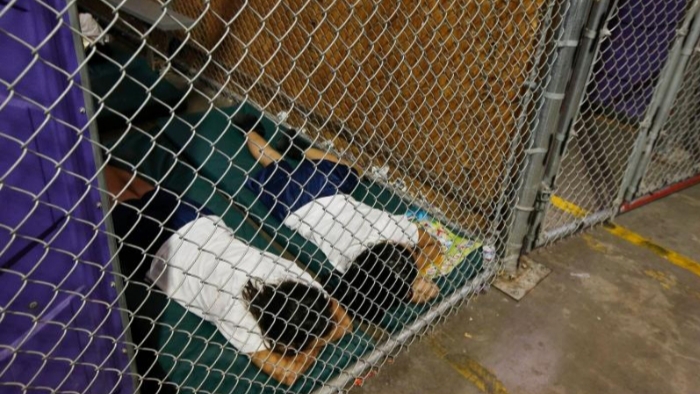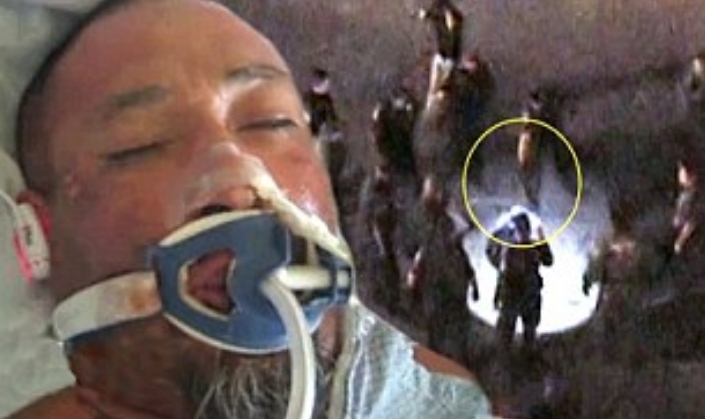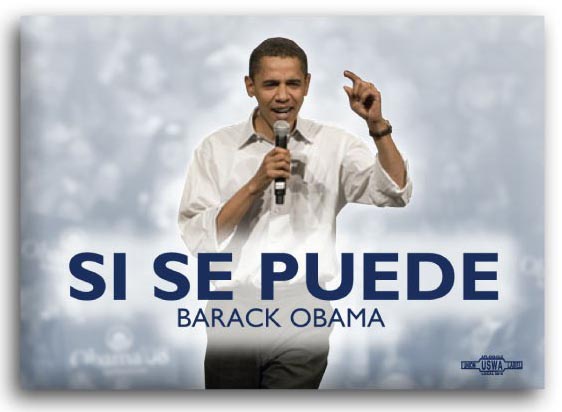The first thing I noticed while watching Julián Castro announce his presidential bid in his hometown of sunny San Antonio last Saturday were the accents. Dozens of accents packed into historic Guadalupe plaza were placed exactly where they were supposed to be: on top of the “a” of all the blue placards proclaiming the arrival of “Julián.” My inner militant language geek raised his left fist in celebration.
proud to be supporting such an outstanding individual from my hometown #Julian2020 @JulianCastro pic.twitter.com/xNp7ogytL9
— gabi ?️? (@gabiantuna) January 12, 2019
For the United States, those accents are historic, if only because they likely represent the first Spanish diacritical marks on the name of any serious Latino or non-Latino candidate in U.S. history. But for many of the more than 55 million Latinos in the United States, that accent means much more. It says, “es nuestro momento,” this is our moment and we will not be denied.
I thought about how my many friends in San Antonio must’ve felt, including friends who introduced me Castro when he was mayor. I also thought of the disturbing facts about “good” and “bad” Latinos I discovered while cruising down Military Drive in the Alamo City in the Bush era.
To my surprise, Castro’s linguistic clarity also included delivering a better-than-expected speech. The sometimes wonkish (and overly stuffed-shirted) Democratic candidate delivered a speech with cadences that were nothing for him or any of us to be ashamed of.
Beyond the performance, the content of his speech included some policy proposals that are anathema to the corporate wing of the Democratic Party many of Castro’s allies hail from: Medicare for All, Universal Pre-K education and other issues forced into the political debate by the growing left (Sanders and Ocasio-Cortez) flank of the party.
When he said, “I won’t be accepting a dime of PAC money in this campaign,” I smiled.
But then Castro made the catastrophic mistake of talking about immigration.
“Yeah, we have to have border security” he said. “But there’s a smart and a humane way to do it. And there is no way in hell that caging babies is a smart or humane way to do it”.
Guadalupe Plaza became a bubbling sea of brown eyes mirroring blue Julián placards.
As I listened to him utter those fateful words about caged children, images of all those brown people holding blue placards were swept aside. My brown eyes started overflowing with tears before the memory of Daniel, a beautiful caramel-colored six-year-old boy imprisoned in a purposely-isolated south Texas facility with his mother and two older siblings. Their crime: trying to exercise their right to asylum from the catastrophe of the Salvadoran gangs who shot Daniel’s uncle in the face, right in front of him.
Daniel connects me to Castro’s speech in unique ways. I met the boy and his mother while visiting the Karnes County Residential Center, a hulking, overcrowded —and deadly— facility located just 50 miles south of Guadalupe Plaza. Without blinking, Daniel, his two immigrant siblings and mother put an accent on the “o” as they described conditions in the detention center they called a “prisión.” His mom described for me conditions so abominable that “boys tried to hang themselves” and “women slit their wrists” to escape the prisión.
Weeks after I left them, Daniel and his mother joined the other women and children who, in their utter desperation, organized a hunger strike that included holding up signs on which the kids painted the word “Libertad.” Internal Department of Homeland Security memos later revealed that Daniel, his siblings and mother, and all the other organizers of the hunger strike were isolated and punished for what the Administration at the time called “insurrection.”


I met Daniel and his family in 2015. The administration that abused, labeled and punished them was not the administration of Donald Trump, but the administration that Castro served as HUD secretary for at the time: the administration of Barack Obama.
Castro’s speech reminded me of the conditions I witnessed among the more than 500 other women and children imprisoned at Karnes, some locked up for over a year or 50 weeks after the six weeks psychiatrists attending Daniel and other kids told me the younger kids’ tender brains start shrinking from too much incarceration. Before, during and since my visit to Karnes, I’ve cried regularly due to the fact that Daniel and his family’s story are but a tiny sliver of the more colossal immigration catastrophe I saw unfold in south Texas and across the US over more than a decade of presidential elections, long before Central American refugees became a liberal causa célebre of millions last summer.
Here are just a few examples:


- Tens of thousands of children and mothers caged or jailed like Daniel and his family after Obama began massifying “family detention” in 2014.
- Interviews with mothers who were threatened with separation from their children by some of the same Obama administration officials who actually separated over 5,100 children from their parents in 2011, as documented in a report little-covered by the same media that blew the child separation story up in 2018.
- I recall how, like Jakelin Caal (the little Mayan girl whose death last December commanded national attention) over 74 migrants experienced “in detention” death-by-neglect in facilities like Karnes between 2010 and 2016, according to Human Rights Watch. All of these deaths were largely ignored by the same media that reported on Caal’s eating habits, her illness, her migration path, her family, her coffin and other details of her final days and death on Trump’s watch;
- Stories about the rape, beatings, torture and other violence heard in Karnes and other facilities where Human Rights Watch, the ACLU (which described the “widespread abuse of child migrants in immigration custody” as “horrific”) and Frontline reported massive amounts of these incidents perpetrated by Obama administration guards and agents against children, mothers and other migrants from 2009-2016. As early as 2011, three years into first Obama administration, the human rights organization No More Deaths produced a report “detailing more than 30,000 incidents of abuse and mistreatment” of migrants held in Border Patrol custody.
- I remember Obama’s Trump-like response to letters like that signed by over 50 immigrant rights organizations demanding he close child and mom “detention centers:” fighting in court to keep child and mom prisons operating. Obama did so even after advocates told him, in no uncertain terms, “Your administration’s massive expansion of family detention and its treatment of vulnerable refugee children and mothers from Central America, however, threatens to severely blemish that legacy.”
- I won’t soon forget conversations with Maria Puga, whose husband, Anastasio Hernández Rojas, died after 20 Obama administration Border Patrol agents left him with “several loose teeth; bruising to his chest, stomach, hips, knees, back, lips, head and eyelids; five broken ribs; and a damaged spine,” according to the ACLU, which called the incident a “homicide.” None of the agents were imprisoned. Anastasio’s killing and that of all other immigrant victims of such violent acts have gone without a single comment from President Obama.


I also don’t recall a single comment on any of these immigration catastrophe stories from either Castro, his fellow Texan Robert (I will not call him “Beto”) O’Rourke, Joe Biden or any of the other 2020 Democratic candidates either. I scanned public comments and could not find an acknowledgement from any of the leading Democratic party candidates for president of a single one of these incidents that took place before January 20, 2018, but all have commented since —with Castro even delivering teddy bears and toys to jailed refugee kids— describing during the high profile action last June, how “frightening” it was for him to know that “thousands of children” were imprisoned by Trump.
Castro’s comments about there being “no way in hell that caging babies is a smart or humane” either refer to both Trump and Obama, or the former HUD Secretary is playing linguistic games, drawing convenient lines in the sand of immigration catastrophe. If that is what Castro is, in fact, doing, his nice words on immigration will carry the same weight as those candidate Obama delivered at the 2008 National Council of La Raza conference to crowd of teary, brown-eyed Latinos desperate for an end to the immigration catastrophe left by George W. Bush:
“When communities are terrorized by ICE immigration raids,” Obama said back then, “when nursing mothers are torn from their babies, when children come home from school to find their parents missing, when people are detained without access to legal counsel. When all that’s happening, the system just isn’t working.”
After delivering the stirring speech and becoming president, Obama went on to break records for the number of migrants and babies terrorized by ICE immigration raids and other devastating policies, including the deportation of a record-smashing almost 3 million (all made possible by what can only be called the enabling amnesia and silence of many Latinos) and many Democrats. Accounting for past abuses fuels #BlackLivesMatter & the #MeToo movement. We can’t afford the efforts of some Democrats to put up a border wall to the abuses of the recent immigrant past. Migrant lives matter too.
Without an honest, public and transparent reckoning with the Obama legacy on immigration, we will not overcome the Trump legacy on immigration. This is true not for rhetorical reasons, but because, at the level of immigrant bodies beaten, immigrant bodies raped, immigrant bodies tortured and immigrant bodies killed by immigration agents of the U.S. government, there is a continuum of policy and practice between Democrats and Republicans, a statistically demonstrable, virulent strain of immigration politics proven to destroy migrant lives under cover of missing accents.
I noted this accent problem early on, as early as 2008. The linguistic giveaway also came in the form of presidential campaign placards. Obama’s placards bore a curious message: Si Se Puede!


Some noted that there was an accent missing above the “i” in “”Si” on many placards. But hardly anyone noted or commented on the fact that, without that accent, “Si Se Puede” means something like “Maybe We Can or Maybe We Can’t” or “If We Can.” In the end and in terms of stopping the immigration catastrophe left by Bush, Obama’s Spanish accent problem proved even worse than Bush’s contributions to the even longer continuum of immigration catastrophe that runs from Bill Clinton in 1996 to Donald Trump in 2019.
If we are ever stop the relentless growth of this deadly continuum, Castro and all other Democratic candidates for president will have to exercise not just linguistic and rhetorical clarity by putting accents where they belong. They will also have to exercise greater moral and political clarity, the kind of clarity that tears down the blurry borders putting political party before immigrant people.
***
Roberto Lovato is a writer and journalist based at the San Francisco Writers’ Grotto. He recently wrote “Politics pushes Central American voices out of child separation coverage” for the Columbia Journalism Review. He tweets from @robvato.



#migrantlivesmatter Here is my contribution to this reflection in the form of a devastating 6 min video http://www.americannightmarefilm.com